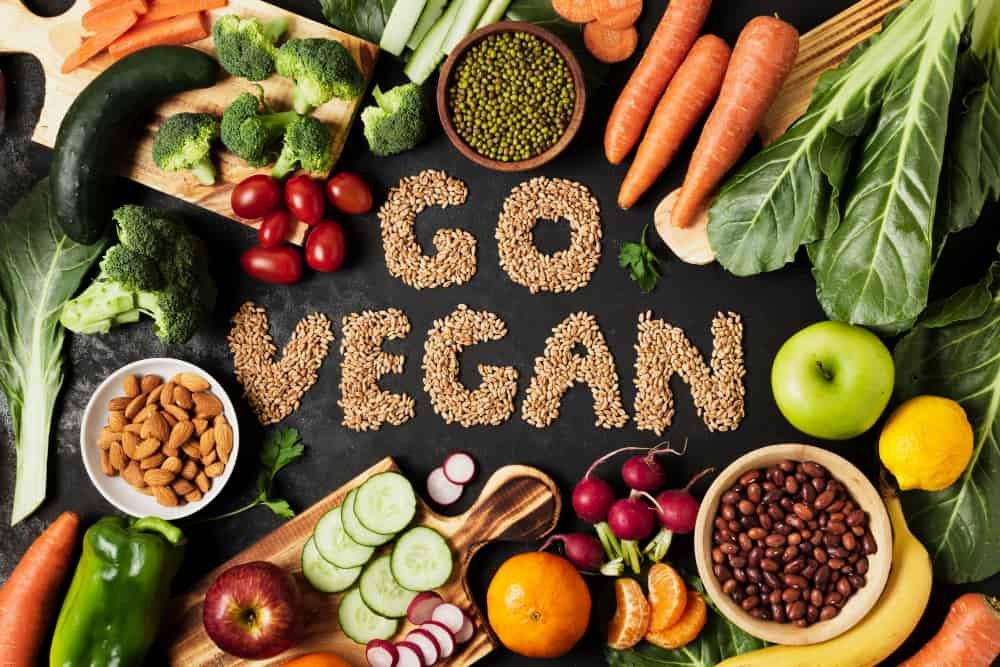Every day, more individuals are settling with the health benefits of a vegan diet and accepting a vegetarian or plant-based diet. As per a 2019 article in The Economist, 25% of 25-to 34-year-old Americans say they are vegetable lovers or vegans. What’s more, interest in veganism hit a record-breaking high in 2020, as indicated by a report by the food-centered site Chef’s Pencil.
Avoiding dairy, meat, and other creature items may appear to be a hassle for some people. For other people, the personal and cultural advantages related to a veggie lover diet settle on a no-brainer decision; for example, numerous individuals care profoundly about the government assistance of creatures. The potential medical advantages alone rouse numerous to switch.
However, is a vegan diet that healthy?
Medical health benefits of vegan diet, when done right.
Jeffrey Soble, MD, a cardiologist at Rush University Medical Center, started a plant-based eating routine almost two years back. Like others, improving his wellbeing while having a family background of coronary illness — assumed a critical part around there. The examination has shown that a veggie lover diet can help do the following:
- Advance weight reduction
- Decrease your danger of coronary illness by bringing down cholesterol levels
- Lower your odds of getting specific kinds of disease, like colon cancer
- Oversee diabetes by bringing down A1C levels
However, as Soble would tell any of his patients thinking of it as themselves, going veggie lover doesn’t naturally ensure great wellbeing.
“You can be overweight and be a veggie lover; you can be malnourished and be a vegetarian,” Soble says. “Whatever your eating routine is, you need to know which food varieties to stay away from and which food varieties to search out.”
The key to a successful vegan diet: Planning
“Refined grains, desserts, and shoddy nourishment are agitators for everybody, not simply vegetarians,” Soble alerts. “Also, veggie lovers and nonvegans the same can fall into the propensity for making these things the pillars of their eating regimen.”
To have a solid eating routine of any sort, you need effective supplements. While large numbers of these may have been ample when you ate dairy and meat, you’ll need to discover better approaches to fuse them into your eating regimen as a vegetarian.
1. Protein:
Animals aren’t the lone wellsprings of protein. Soy items (e.g., tofu and edamame) are additionally loaded with protein. Other great sources incorporate seitan (produced using gluten), chickpeas, lentils, and nutritional yeast.
2. Nutrient B12:
An absence of nutrient B12 can cause you to feel drained and feeble. Getting sufficient nutrient B12, however, can be hard for vegetarians since it can’t be found in plants. To get your fill, stock up on braced grains, strengthened rice, and soy drinks — or take a supplement. The suggested day-by-day sum for most grown-ups is about 2.4 milligrams; however, check with your primary care physician to perceive what’s appropriate for you.
3. Fundamental unsaturated fats:
An absence of essential unsaturated fats has been related to issues identified with cerebrum heath, like psychological impairment and depression. To get your essential unsaturated fats, accumulate the entire grains and verdant green vegetables (e.g., kale, spinach, and collards). Also, have a go at eating on a modest little bunch of unsalted nuts, similar to almonds, pecans, or pistachios (watch your segments; nuts are high in calories).
4. Iron:
Red meat and egg yolks rule as the most extravagant wellsprings of iron. However, they additionally are high in cholesterol. Great plant sources of iron incorporate black-eyed peas, tofu, and dried natural products (fresh fruits have iron, as well, you get more iron from dried fruit since you eat more).
5. Vitamin D:
Ten to 15 minutes of daylight exposure daily can give you a nutrient D lift, as well as braced squeezed orange and soy.
Veganism doesn’t need to win or loose. By making your guide and being sensible about what you need to accomplish, you’ll be happier with rolling out the improvement. Just keep these important factors related to a healthy diet in mind first.
Tips for understanding health benefits of a vegan diet.
Feeling prepared to roll out the improvement? To facilitate your change, Soble proposes a couple of ideas:
- Converse with your accomplice first. Clarify your purposes behind rolling out the improvement. Your accomplice may choose to make the excursion with you, or you may need to do it single-handedly. If you decide to eat unexpectedly, talk about how that will work regarding shopping, dinner planning, and eating out.
- Take notes. Record which vegetarian food sources you’ve delighted in before and where to get them. It can incorporate arranged suppers from your neighborhood food merchant, your favored image of soy yogurt, or scrumptious entrées at close cafés. This convenient rundown will assist with a minute ago supper arranging and help remove the pressure from shopping and eating.
- Understand your assumptions. Will you guarantee that each thing you eat has no creature items by reading ingredient labels? On the other hand, will you adopt an alternate strategy and have a little frozen yogurt at birthday celebrations? Veganism doesn’t need to be win or loss.
- Investigate your objectives and destinations and do what turns out best for you. “By making your guide and being practical about what you need to accomplish, you’ll be happier with rolling out the improvement,” Soble says. “Eliminate obstacles. Can’t go veggie lover in light of the fact that there’s no Whole Foods or Trader Joe’s close by?
Nowadays, you needn’t bother with a connoisseur of a natural supermarket to shop vegetarian, Soble says. “In Chicago, more corporate retailers are opening in underserved networks and offering new products as well as soy items.” Furthermore, you don’t have to have natural food sources or even new products to be a vegetarian. Frozen vegetables and natural products can likewise be essential for a vegetarian diet.
